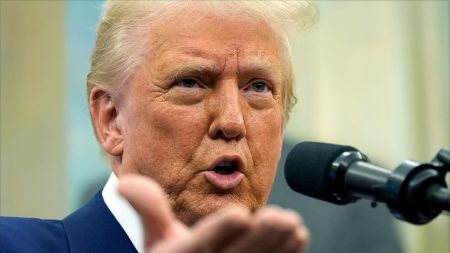Hong Kong Post Suspends Shipments to the U.S. Amid Ongoing Trade Tensions
1. Overview of the situation
Hong Kong’s postal service has announced that it will continue to suspend the shipping of items containing goods to the United States until further notice. This decision comes despite the U.S. postal service reversing its earlier ban on accepting packages from Hong Kong and other parts of China. The Hong Kong government has expressed strong disapproval of the U.S. imposition of additional tariffs on Hong Kong products and has urged the U.S. to rectify this decision.
The suspension of shipping services by Hong Kong Post has created uncertainty for individuals and businesses that rely on the postal service to send goods to the U.S. The Hong Kong government has stated that discussions are ongoing with the U.S. postal administration, but further clarification is needed on several matters, including the issue of tariffs. This situation highlights the broader trade tensions between the U.S. and China, with Hong Kong being caught in the middle.
2. Background: U.S.-China trade tensions and their impact on postal services
The U.S. recently imposed an additional 10% tariff on Chinese goods, which led to the U.S. postal service announcing that it would no longer accept parcels from China, including Hong Kong. This decision was made after the U.S. ended a customs exception that allowed small-value parcels to enter the U.S. without paying tax. The “de minimis” rule, which permitted tax-free entry for shipments valued under $800, was a significant factor in the success of online shopping platforms like Shein and Temu, which ship goods directly from China to U.S. consumers.
However, the U.S. postal service quickly reversed its decision, stating that it would work with U.S. Customs and Border Protection to implement a new process for collecting tariffs on these shipments. Despite this reversal, the initial ban caused confusion and concern among those who rely on Hong Kong as a trading hub to send goods to the U.S. The suspension of shipping services by Hong Kong Post has added another layer of complexity to this already uncertain situation.
3. The reversal of the U.S. ban and its implications
The U.S. postal service’s initial decision to stop accepting parcels from China, including Hong Kong, was met with widespread concern. This move was seen as a direct response to the U.S. government’s decision to impose additional tariffs on Chinese goods. The reversal of this decision within a short period of time has been puzzling, as it provided little clarity on how the new tariff collection process would be implemented.
For those in Hong Kong who rely on the postal service to send goods to the U.S., the confusion has been compounded by the time difference. The initial ban and subsequent reversal took place within the same day in Hong Kong time, leaving many unsure of the current status of postal services. This unpredictability has raised concerns about the potential disruptions to international trade and the impact on businesses that depend on efficient and reliable shipping services.
4. The impact on online shopping and e-commerce platforms
The suspension of shipping services by Hong Kong Post and the uncertainty surrounding the U.S. tariffs have significant implications for online shopping platforms like Shein and Temu. These platforms have gained popularity in the U.S. for their affordable clothing and other products, which are shipped directly from China to consumers. The cheap and direct postal service has been a key factor in keeping costs low for these companies.
The termination of the “de minimis” exemption, which allowed tax-free entry for shipments under $800, has added an additional financial burden on these platforms. The new tariffs will likely increase the cost of shipping, which could be passed on to consumers in the form of higher prices. This could impact the competitiveness of these platforms in the U.S. market, where price-conscious consumers are a major driving force behind their success.
5. The broader implications for U.S.-China trade relations
The situation involving Hong Kong Post and the U.S. postal service is just one example of the broader trade tensions between the U.S. and China. The U.S. imported approximately $427 billion worth of goods from China in 2023, according to the U.S. Census Bureau. Consumer electronics, such as cellphones, computers, and tech accessories, make up the largest category of imports. Any disruptions to the shipping of these goods could have a significant impact on the U.S. market and consumers.
The ongoing trade tensions between the two nations have created an environment of uncertainty for businesses and consumers alike. The imposition of additional tariffs and the suspension of shipping services are just a few examples of how these tensions are manifesting. As the situation continues to evolve, it remains to be seen how the U.S. and China will resolve their differences and what the long-term implications will be for global trade.
6. Conclusion: The path forward for Hong Kong Post and U.S.-China trade relations
In conclusion, the decision by Hong Kong Post to suspend shipping services to the U.S. highlights the challenges posed by ongoing trade tensions between the U.S. and China. While the U.S. postal service’s reversal of its ban on packages from China has provided some relief, the uncertainty surrounding the new tariff collection process and its impact on international trade remains a concern.
The Hong Kong government has made it clear that it disapproves of the additional tariffs imposed by the U.S. and is urging for a resolution to the issue. As discussions continue between Hong Kong Post and the U.S. postal administration, it is essential that both parties work towards a solution that minimizes disruptions to international trade and ensures that consumers and businesses are not unduly burdened by additional costs.
For now, the suspension of shipping services by Hong Kong Post serves as a reminder of the fragile nature of international trade relations in the current geopolitical climate. The situation underscores the need for ongoing dialogue and cooperation to address the issues driving these tensions and to find a path forward that benefits all parties involved.















